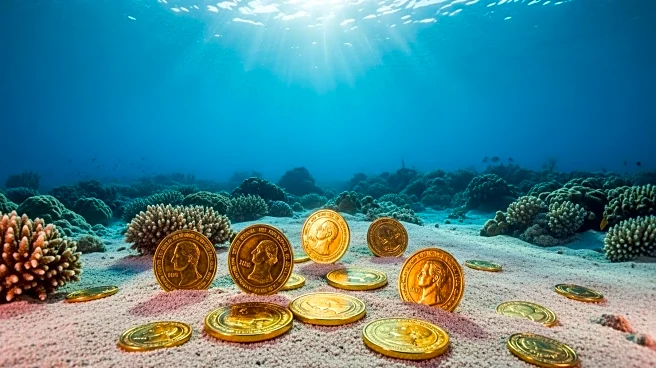What's Happening?
A shipwreck salvage company, 1715 Fleet Queens Jewels, LLC, has announced the recovery of over 1,000 silver and gold coins valued at approximately $1 million from an 18th-century shipwreck off Florida's Treasure Coast. The coins are part of the $400 million worth of gold, silver, and jewels lost by the Spanish fleet during a hurricane in 1715. The coins, known as pieces of eight, were minted in the Spanish colonies of Mexico, Peru, and Bolivia, and many still bear visible dates and mint marks. The discovery also included a royal lead seal and fragments of a gold chain. The coins were found in a concentrated area deep in the sand, suggesting they were once contained in a wooden box that degraded over time.
Why It's Important?
This discovery is significant as it provides a tangible link to the history of the Spanish Empire during its Golden Age. The coins and artifacts recovered offer insights into the economic and cultural exchanges of the time. For historians and collectors, the visible dates and mint marks on the coins are of particular interest. The recovery also highlights the ongoing efforts to preserve and study historical artifacts, contributing to our understanding of past maritime activities and trade routes. The find is expected to attract attention from historians, collectors, and the general public, potentially boosting interest in maritime archaeology and local tourism.
What's Next?
The recovered coins will undergo careful conservation before being displayed to the public. Plans are underway for select pieces to be exhibited at local museums, allowing the public to appreciate their historical significance. The company, which claims exclusive salvage rights to the 1715 treasure fleet remains, is committed to preserving and studying these artifacts. This ongoing project may lead to further discoveries, enhancing our understanding of the 1715 fleet and its historical context. The U.S. District Court of Florida and Florida Governor Ron DeSantis' office have not yet commented on the discovery.









